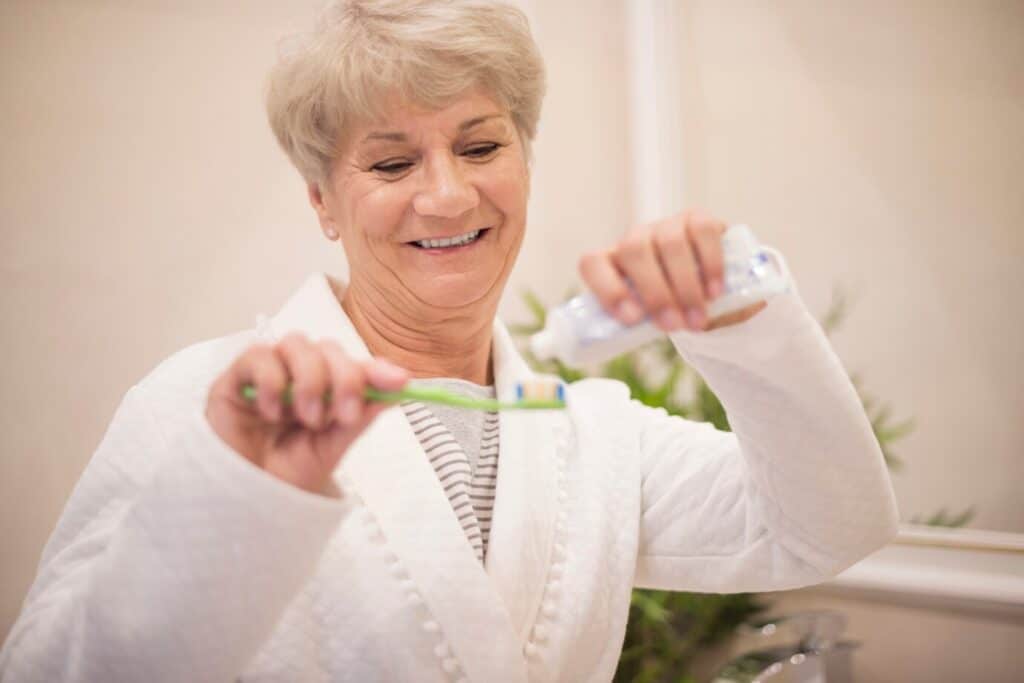Lifelong Oral Health Strategies for Seniors at Westmont
Maintaining oral health becomes increasingly important as we age, not just for a beautiful smile but for overall wellness and confidence. Seniors face unique challenges such as tooth sensitivity, gum disease, and dry mouth that require a proactive, consistent oral hygiene routine. Taking care of your teeth and gums can significantly reduce the risk of infections, chronic pain, and costly treatments down the road.
At Westmont of Fresno, we believe in empowering seniors with the tools and knowledge to make informed choices about their dental care. From nutrition and daily habits to regular check-ups, every aspect plays a role in preserving your oral health. This guide explores essential practices and awareness to help you take control of your dental wellness and inspire others in your community to do the same. Learn more about our senior living options at Westmont of Fresno.
Understanding the Dynamics of Aging Teeth
As you age, your teeth undergo natural wear and tear, which can increase their vulnerability. One of the most common oral health problems among seniors is tooth sensitivity, often caused by enamel erosion. Another frequent issue is dry mouth, which is linked to reduced saliva production and can contribute to tooth decay and gum disease.
These challenges highlight the importance of oral health and early intervention. Enamel restoration procedures, fluoride treatments, and dietary adjustments can protect your teeth from further deterioration. Understanding the aging process helps in forming a long-term dental care strategy that supports both functionality and aesthetics. For additional insights, explore common oral health issues faced by older adults.
Essential Daily Oral Care Practices
A strong foundation for oral health lies in daily hygiene routines. Brushing twice daily with fluoride toothpaste and flossing can significantly reduce plaque buildup and prevent oral health problems such as cavities and gum inflammation. Many seniors find that electric toothbrushes with ergonomic grips provide better access and comfort.
Flossing may require assistance or alternatives like water flossers for those with limited dexterity. Rinsing with antiseptic mouthwash can eliminate harmful bacteria and freshen breath. Staying hydrated also supports saliva flow, an essential defense against tooth decay. Communities like Westmont offer resources and reminders to ensure that dental care becomes a part of daily life. Learn more about our wellness support for seniors.
The Role of Nutrition in Oral Health
Diet is another critical factor influencing oral health in older adults. Consuming a variety of fruits, vegetables, dairy products, and whole grains ensures that your teeth and gums receive the necessary nutrients to stay strong. Calcium-rich foods like milk, yogurt, and leafy greens help protect enamel and bone structure.
Vitamin C, found in citrus fruits and bell peppers, helps prevent gum disease and supports tissue repair. Avoiding sugary snacks and acidic beverages can significantly lower your risk of developing oral health diseases. Proper nutrition also strengthens the immune system, making it easier for your body to fight off dental infections. Visit this guide on nutrition and longevity to learn how food choices impact aging.
The Importance of Regular Dental Check-ups
Routine dental visits are essential for maintaining oral health, even when no symptoms are present. Dental professionals can spot early warning signs of disease and offer preventative treatments that save time, money, and discomfort in the long run. Seniors are particularly vulnerable to conditions like gum disease, root decay, and even oral cancer.
Check-ups allow for the early detection of oral health diseases, including gingivitis, periodontitis, oral thrush, and tooth abscesses. Your dentist can also provide tailored advice on cleaning techniques, diet, and denture care. At Westmont, our staff can help schedule appointments and provide transportation to ensure consistent dental care. Residents of assisted living facilities can also benefit from oral hygiene support services.
Special Considerations for Seniors in Oral Care
Seniors often face mobility challenges or wear dentures, which require additional attention. Adaptive toothbrushes, floss holders, and water picks make daily routines easier and more effective. Dentures should be cleaned daily using appropriate brushes and solutions, and checked regularly for fit and comfort.
Health conditions such as diabetes or arthritis may affect your ability to maintain oral health, making it crucial to inform your dental provider of any changes. Staying hydrated and using saliva substitutes can alleviate dry mouth symptoms. Here’s a quick reference guide for senior oral care:
| Consideration | Recommended Action |
| Denture Care | Clean daily and soak overnight |
| Dry Mouth | Use saliva substitutes and hydrate often |
| Limited Mobility | Use electric toothbrushes or adaptive tools |
| Chronic Conditions | Notify your dentist and adjust routines |
Also, consider how proper hydration supports not only oral care but skin health and overall well-being.

Raising Oral Health Awareness in Senior Communities
Promoting oral health awareness can significantly improve the quality of life for aging populations. Educating seniors and caregivers about best practices helps prevent common conditions and fosters independence. Workshops, printed guides, and peer discussions are effective ways to foster an informed community.
Many seniors are unaware of the systemic links between poor oral health and heart disease, diabetes, and cognitive decline. By incorporating oral hygiene into a broader conversation about wellness, communities can foster more comprehensive self-care. For more information, the CDC’s Oral Health page offers resources for senior dental care and prevention strategies.
What Are 5 Oral Health Diseases Seniors Should Know?
Understanding specific conditions can motivate more proactive care. Here are five common oral health diseases:
- Gingivitis – Mild gum inflammation that can progress if untreated.
- Periodontitis – Severe gum disease causing tooth and bone loss.
- Oral Thrush – A yeast infection common among denture wearers.
- Root Decay – Tooth root damage due to receding gums.
- Oral Cancer – Life-threatening and often diagnosed late in seniors.
Identifying and treating these early through dental exams and daily care routines reduces complications and improves outcomes. Recognizing the signs of oral health problems is the first step to timely intervention.
A Healthy Smile Is a Confident Smile
Embracing oral health in your senior years is more than a maintenance task—it’s a gateway to confidence, comfort, and overall well-being. Whether you’re brushing daily, eating nutrient-rich foods, or scheduling your next check-up, every action you take strengthens your smile and enhances your life.
Don’t let age define your dental future. Make each step count by prioritizing the importance of oral health in your daily habits. For more guidance or to discover how Westmont of Fresno supports dental wellness through senior care, please call us at 559-446-1266 or schedule a tour.
Discover how a supportive environment can enhance your health journey and help maintain the brightness of your smile for years to come.
How Do The Costs Of Moving Into A Quality Senior Care Community Compare With The Costs Of Staying At Home?Compare The Costs of Senior Living vs Staying at Home
Frequently Asked Questions
What is the meaning of oral health?
Oral health refers to the condition of your teeth, gums, mouth, and overall oral-facial system that allows you to smile, speak, and chew properly. It includes the absence of diseases such as cavities, gum disease, and oral cancer. Good oral health supports your overall well-being and confidence in daily interactions.
Why is oral health important?
Oral health is important because it directly affects your ability to eat, speak, and interact comfortably. Poor oral hygiene can lead to severe conditions like infections, heart disease, and diabetes complications. Maintaining oral health can also prevent pain, tooth loss, and expensive dental procedures.
How can we improve oral health?
Improving oral health starts with brushing twice a day, flossing daily, and visiting the dentist regularly. Avoiding tobacco, reducing sugar intake, and drinking plenty of water also help protect teeth and gums. A balanced diet and professional cleanings support long-term oral health.
What are the types of oral health?
The types of oral health refer to different areas like dental health (teeth), periodontal health (gums), and oral mucosal health (tissues in the mouth). It also includes bite alignment, jaw function, and conditions affecting the tongue and palate. Each aspect plays a crucial role in maintaining your mouth’s health and preventing disease.








